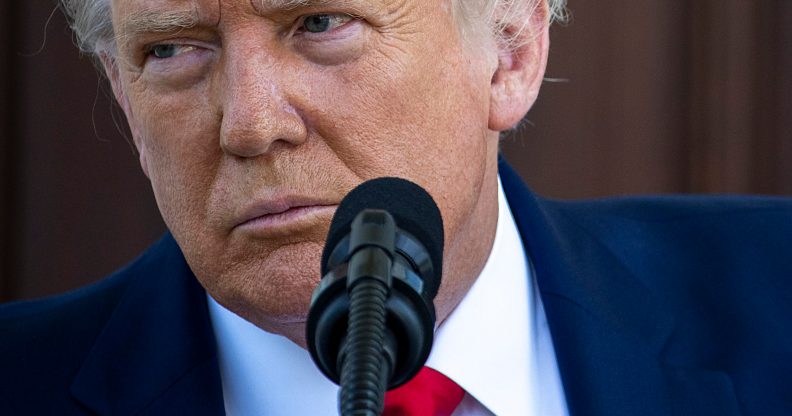Trump’s reported tax rebate could’ve covered the cost of trans healthcare to the US military almost three times over

US President Donald Trump (Tasos Katopodis/Getty Images)
US President Donald Trump (Tasos Katopodis/Getty Images)
The US paid almost three times more to shoulder tax returns to Donald Trump than it did on transgender healthcare for the US military, reports suggest.
In 2017, Trump announced a ban on trans people serving openly in the US military, claiming it needed to focus on “decisive and overwhelming victory” without being burdened by the “tremendous medical costs” of trans personnel.
But according to data seen by the New York Times, the president’s tax avoidance cost America far, far more.
The shocking report states that Trump paid just $750 a year in federal income tax in 2016 and 2017, and no income taxes at all in 10 of the previous 15 years. It amounts to a $72.9 million tax refund, or $7.29 million per year, a figure at the centre of a decade-long audit battle with the IRS.
Meanwhile, the US military spent $2.6 million annually on trans healthcare between 2016 and 2019 – less than one per cent of its total health budget. This means Trump’s disputed tax rebate could have covered the cost almost three times over.
An estimated 14,700 troops on active duty and in the reserves identify as transgender, but not all seek treatment. As of April 2019 they are forbidden from serving while presenting as their gender identity, and no openly trans people are permitted to enlist.
Democrats and activists have sought to stymie the ban saying it mirrors the Don’t Ask, Don’t Tell policy that prohibited gay men and women from serving openly in the armed forces before Congress repealed it in 2010.
In July this year a bloc of 28 fellow Democrats sponsored a measure that barred the use of Pentagon funds to implement it.
“The department of defence should not be spending taxpayer money on a politically motivated policy that keeps qualified people out of the military, particularly when the military continues to face enlistment shortfalls,” the research institute Palm Center said in a news release.
“[The amendment] sends the fiscally responsible message that we should be spending money on protecting Americans, not on baseless policies enacted to score political points.”
There have been renewed calls to lift the ban as the coronavirus crisis impacts recruitment drives and thousands of military personnel are deployed to distribute medical supplies, cleaning nursing homes and remove bodies.
Nevertheless, a spokesperson for the US department of defence told Reuters: “The department is not considering adjusting existing policy.”

